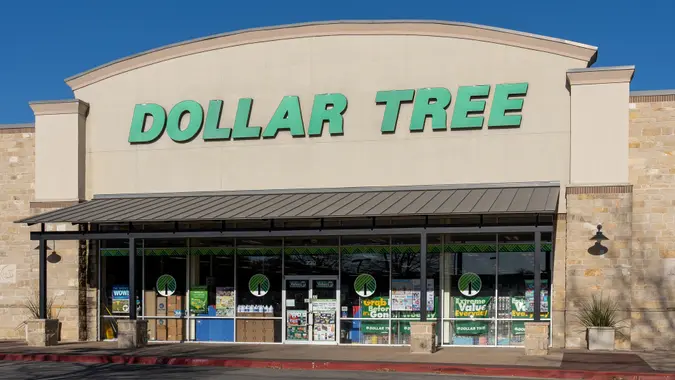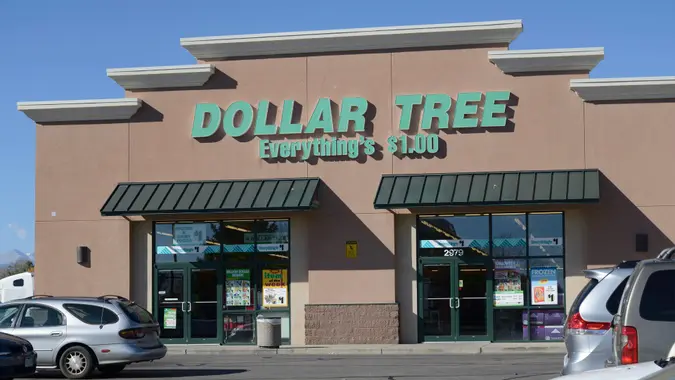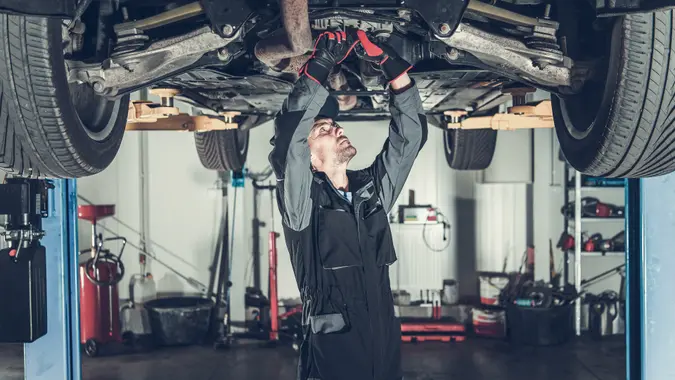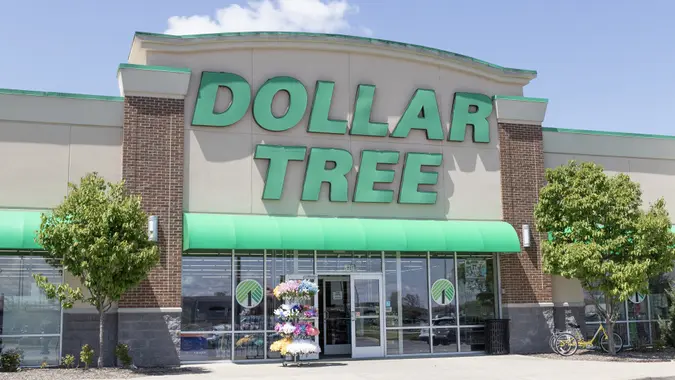When Will Car Prices Drop?
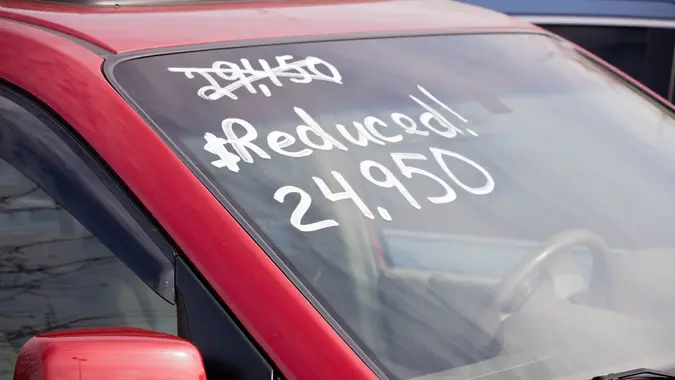
Commitment to Our Readers
GOBankingRates' editorial team is committed to bringing you unbiased reviews and information. We use data-driven methodologies to evaluate financial products and services - our reviews and ratings are not influenced by advertisers. You can read more about our editorial guidelines and our products and services review methodology.

20 Years
Helping You Live Richer

Reviewed
by Experts

Trusted by
Millions of Readers
If you’ve been car shopping anytime within the past two years, you’ve probably noticed the dramatic increase in car prices. The shortage of vehicles, driven by a semiconductor scarcity, has been the primary culprit. So when will car prices drop? Keep reading to find out.
When Will Car Prices Drop?
There has been a significant decrease in used car prices already this year. Prices on used vehicles have dropped by 8.7% compared to last year. High-demand models like the Tesla Model 3 have seen even steeper declines.
New car prices, while still high, are showing signs of stabilization. As of Oct. 2023, average new car transaction prices were about $47,936, remaining flat compared to last year. This price stability indicates a gradual return to pre-pandemic levels. Electric vehicle prices have notably decreased, with average prices down by approximately $13,000 from a year ago.
Factors Influencing New Car Prices
Several factors are influencing current car prices:
- Inventory: New car inventories are recovering. By the start of October, many brands’ inventories were up 62% from a year ago. However, some brands still face shortages.
- Manufacturer incentives: Incentives have increased to an average of $2,400 per vehicle, helping to lower effective prices for new cars.
- Trade-in values: A lack of used vehicle stock is pushing trade-in values higher, which can offset the cost of a new car purchase.
How Did Cars Get So Expensive?
The rise in car prices over the past few years can be traced back to a combination of high demand and limited supply, exacerbated by the semiconductor shortage at the start of the COVID-19 pandemic.
With fewer new cars being produced, manufacturers and dealers cut back on discounts, leading to higher prices.
Is There a Car Shortage?
The car shortage, primarily driven by the semiconductor shortage, is now easing. Automobile manufacturers have reported improvements in the supply chain, which is reflected in the more stable pricing of vehicles. This development is crucial for the market, as it suggests an increase in supply and potentially more competitive pricing ahead.
How Much Does a New Car Cost Right Now?
The cost of new vehicles in the U.S. remains at a high level. As of Oct. 2023, the average price for a new car is about $48,000.
This pricing trend marks a slight decrease from the record highs experienced earlier in the year but still indicates a substantial increase compared to previous years.
For instance, back in July 2020, the average new vehicle was priced at $38,378, demonstrating a notable rise in prices over a relatively short period.
What Will Make Car Prices Get Back To Normal?
The key to normalizing car prices lies in balancing supply and demand. As production bottlenecks, like the semiconductor shortage, continue to resolve, more new cars will enter the market, helping to stabilize both new and used car prices. This should, in turn, contribute to a reduction in inflation in the automotive sector.
Final Take
The prediction for when car prices will drop remains complex and influenced by factors beyond the consumer’s control. However, with the easing of the semiconductor shortage and stabilization in the market, it seems probable that car prices will likely see a more significant drop in the coming months.
FAQ
- What is the best month to buy a new car?
- Typically, the best months to buy a new car are at the end of the calendar year, such as October, November and December. During these months, dealerships often have sales events and are looking to clear out inventory to make room for new models. Additionally, shopping at the end of the month might yield better deals as salespeople strive to meet quotas.
- Should I wait until 2024 to buy a car?
- Waiting until 2024 to buy a car could be a strategic move if you're not in urgent need of a new vehicle. It's anticipated that by then, some of the current market pressures may have eased, potentially leading to more favorable pricing. However, it's also important to consider other factors like your personal needs, market trends and economic conditions at that time.
Chris Ozarowski, Nicole Spector and Daria Uhlig contributed to the reporting for this article.
Editor's note: This article was produced via automated technology and then fine-tuned and verified for accuracy by a member of GOBankingRates' editorial team.
Our in-house research team and on-site financial experts work together to create content that’s accurate, impartial, and up to date. We fact-check every single statistic, quote and fact using trusted primary resources to make sure the information we provide is correct. You can learn more about GOBankingRates’ processes and standards in our editorial policy.
- InvestorPlace. 2022. "When Will Car Prices Drop in 2022? 2023?"
- Cox Automotive. "New-Vehicle Prices Surge to Record Highs for Fifth Straight Month, According to Kelley Blue Book."
- CNN. 2023. "The steep plunge in used car prices – what it means, and what’s ahead."
- U.S. Bureau of Labor Statistics. 2023. "Consumer Price Index Summary."
- Edmunds. 2022. "Car Shoppers Can Look Forward to Cooling Used Car Prices This Labor Day Weekend, According to Edmunds."
- J.P. Morgan. 2022. "Supply Chain Issues and Autos: When Will the Chip Shortage End?"
- Cars.com. 2023. "Is the Inventory Shortage Coming to an End?"
- ISeeCars. 2023. "Used Car Prices Continue to Fall, Led by Tesla’s Model 3."
- Autoweek. 2023. "Used-Car Prices Are Finally Dropping."
- Kelley Blue Book. 2023. "When Will New Car Prices Drop?"
- CBS News. 2023. "Average new car cost in U.S. up to $48,000, only one model selling for less than $20,000."
 Written by
Written by 




